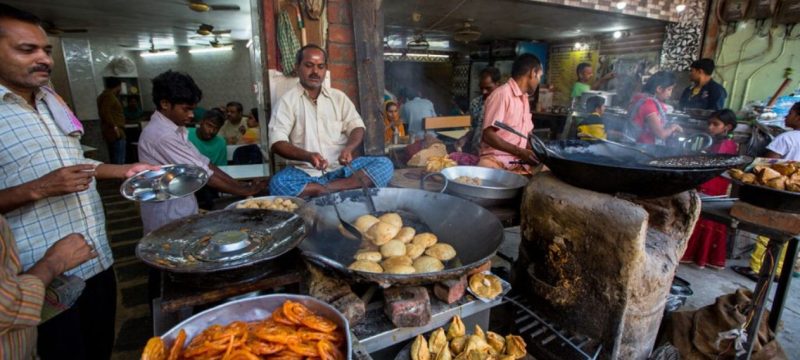Two Indian states governed by the Bharatiya Janata Party (BJP) have implemented strict measures against food contamination, including significant fines and possible imprisonment.
In Uttarakhand, offenders may face fines of up to ₹100,000 (approximately $1,190), while neighboring Uttar Pradesh is preparing to introduce comprehensive regulations to address the issue. These initiatives arose after unverified social media videos revealed shocking incidents of food contamination, such as vendors spitting on food and a domestic worker allegedly mixing urine into meals.
Read more: Russian Blogger Abducted by Pakistani Taliban in Khyber Pakhtunkhwa
These disturbing clips sparked public outrage and raised serious food safety concerns in the states. However, they also generated divisive narratives, particularly targeting the Muslim community. Initial claims suggested the woman in the video was Muslim, but investigations later confirmed her to be Hindu, highlighting the spread of misleading information online.
Officials argue that these strict laws are necessary to deter unsanitary food practices, but opposition leaders and legal experts warn of potential misuse aimed at vilifying specific communities. Critics, including some media outlets, have described the proposed ordinances as “sectarian dog whistles,” exploiting majority fears while targeting an already marginalized group.
India’s diverse cultural, religious, and caste dynamics complicate discussions around food safety. Norms and taboos surrounding food often exacerbate tensions between communities, intertwining food safety issues with religious narratives. This context is crucial, especially as the Food Safety and Standards Authority (FSSAI) estimates that unsafe food causes about 600 million infections and 400,000 deaths annually.
Experts attribute poor food safety standards to inadequate law enforcement and a lack of public awareness. Common problems like cramped kitchens, dirty utensils, contaminated water, and improper food handling further jeopardize food safety in India. In response to the viral videos, the Uttarakhand government mandated police verification of food establishment staff and the installation of CCTV cameras in kitchens.
In Uttar Pradesh, Chief Minister Yogi Adityanath has proposed ordinances that could impose penalties of up to ten years in prison for food spitting offenses, emphasizing the importance of thorough employee verification and mandatory display of owner information at food establishments.
Amid these developments, the Supreme Court of India recently intervened to stop directives that unfairly targeted food vendors during the Kanwar Yatra, a significant Hindu pilgrimage, as petitioners argued that these measures disproportionately impacted Muslim vendors.
Recent arrests linked to food contamination, such as that of Mohammad Irshad in Barakanki for allegedly spitting on a roti, have intensified tensions. Accusations of disturbing communal harmony and public outrage emerged, with videos of these incidents taking on a religious dimension, leading to the term “thook-jihad,” which connects spitting to communal defilement.
This is not the first instance of the Muslim community facing accusations related to food safety; during the COVID-19 pandemic, a surge of fake videos targeting Muslims circulated, exacerbating religious polarization and fostering an atmosphere of distrust.









